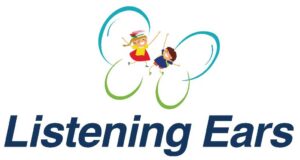Fine Motor Skills: A Comprehensive Guide
Fine motor skills encompass the coordinated use of small muscles in the hands and fingers to perform precise movements. These skills are essential for everyday activities such as writing with pencils, cutting with scissors, fastening buttons, and opening lunch containers.
The effectiveness of fine motor skills directly impacts both the quality of completed tasks and the speed at which they can be performed. Successful fine motor control requires multiple independent abilities to function harmoniously, enabling proper object manipulation and task completion.
Components of Fine Motor Skills
Fine motor skills encompass several key areas of development:
Academic Applications
Children rely on fine motor skills for various educational tasks, including pencil control for activities like scribbling, coloring, drawing, and writing. Additionally, scissor skills are crucial for cutting activities that support learning and creativity.
Play and Recreation
During play, children use fine motor skills for construction activities involving puzzles and building train tracks. These skills also support doll play and manipulation, as well as technology use such as controlling computer mice and using styluses for digital devices.
Daily Living Skills
Self-care activities heavily depend on fine motor coordination. Dressing skills include managing shoelaces, sandal straps, zippers, buttons, and belts. Eating independently requires proficiency with utensils and the ability to open lunch containers and food packaging. Personal hygiene tasks such as teeth cleaning, hair brushing, and toileting also rely on these precise movements.
The Importance of Fine Motor Development
Fine motor skills serve as the foundation for numerous daily activities and academic achievements. When children struggle with these skills, the consequences extend far beyond simple task completion.
Children who experience fine motor difficulties often face challenges with self-esteem as they struggle to keep pace with their peers in both academic and play situations. Their academic performance may suffer when they cannot effectively use writing tools or complete hands-on learning activities. Additionally, their play experiences become limited, potentially affecting social interactions and creative development.
Perhaps most significantly, inadequate fine motor skills prevent children from developing age-appropriate independence in essential life skills such as dressing and self-feeding. This dependency can create social challenges that ripple through family dynamics and peer relationships, potentially affecting a child’s overall confidence and social development.
The development of strong fine motor skills therefore represents a critical foundation for academic success, social interaction, and personal independence throughout childhood and beyond.
If you are from Delhi or Noida and searching for occupational therapy, Listening Ears provides Occupational Therapy in Delhi and Occupational Therapy in Noida. These services are designed to help children develop essential skills and grow confidently.
Fine motor skills also play a key role in managing daily routines and diet management.
See how they link with free play and development.
